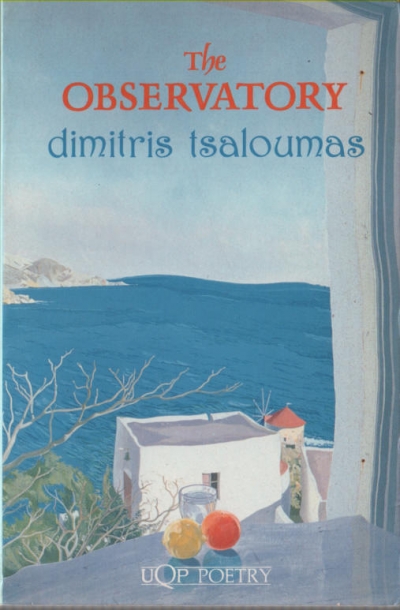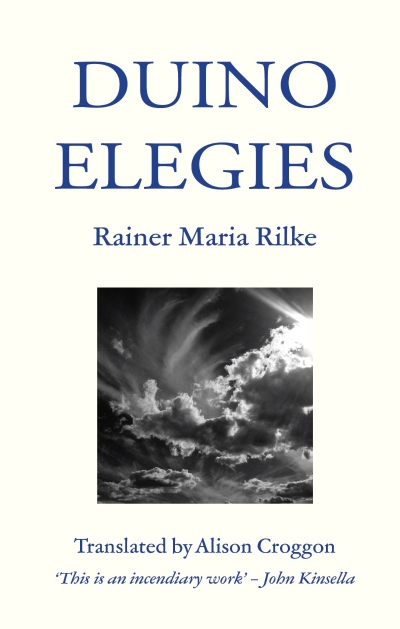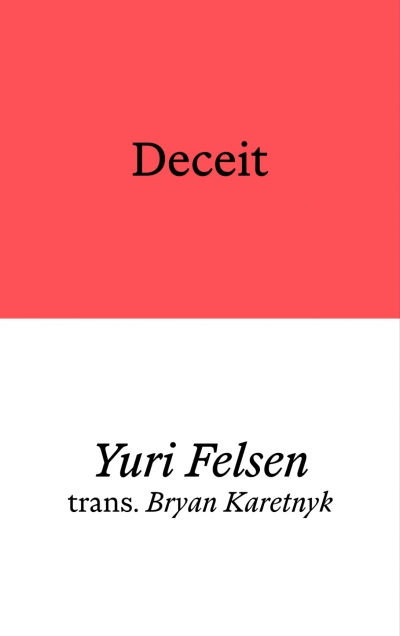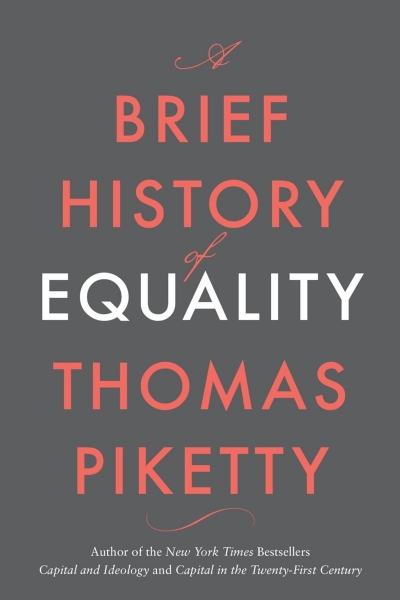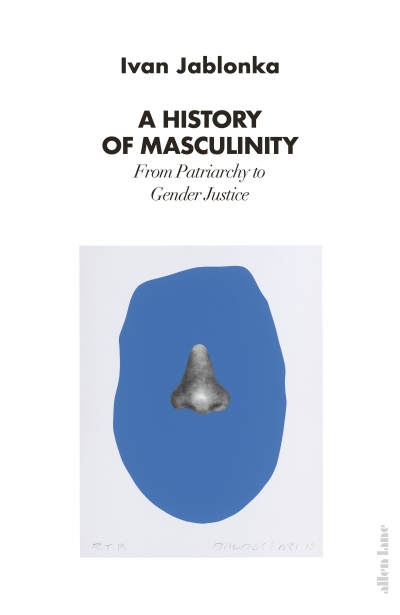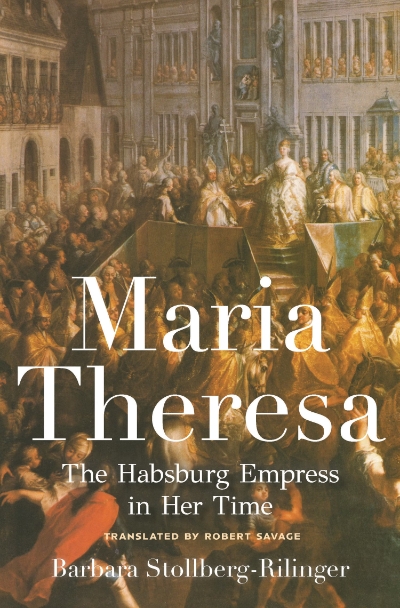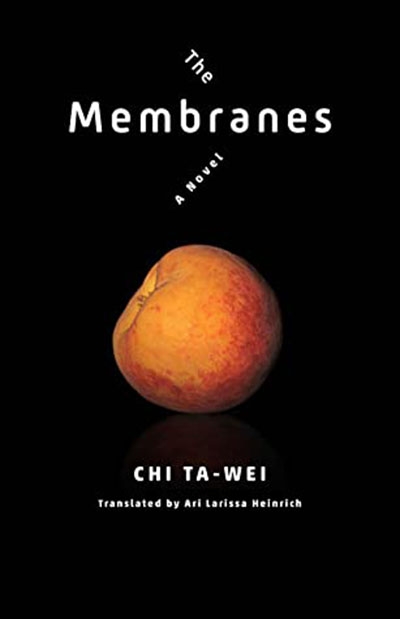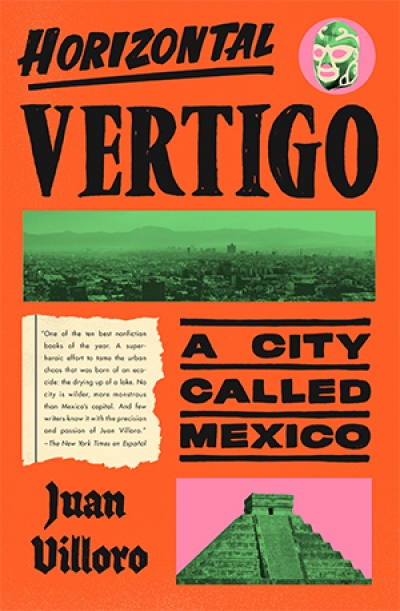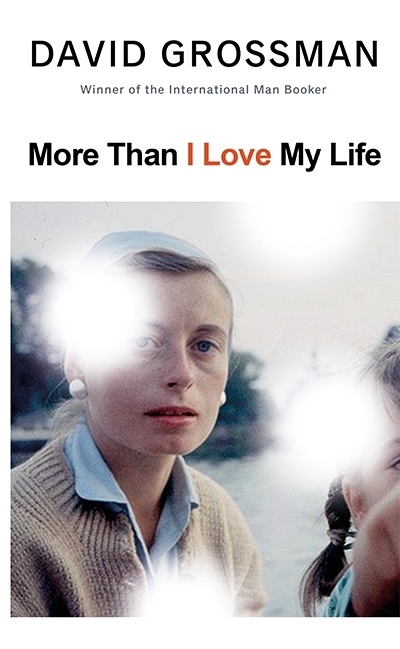Translations
The Observatory: Selected poems by Dimitris Tsaloumas, translated by Philip Grundy
Migrant writing in this country isn’t just burgeoning, it has begun to flourish. The writing itself and the study of it begin to look like a ‘growth industry’. What I know of it is varied both in kind and quality, but I’ve no doubt at all that the poetry of Dimitris Tsaloumas is an important achievement by any standard.
... (read more)Duino Elegies by Rainer Maria Rilke, translated by Alison Croggon
Rainer Maria Rilke’s Duino Elegies were begun in a burst of inspiration while he was staying at Duino Castle near Trieste in 1912. Walking along the battlements after receiving a difficult business letter, he heard a mysterious voice calling to him from an approaching storm. Their composition was then interrupted by a personal and artistic crisis that lasted until 1922, when he finished them in an even more astonishing afflatus which also included the gift of their companion-masterpiece, the Sonnets to Orpheus, at the Château de Muzot in Switzerland.
... (read more)Nikolai Freudenstein was born in St Petersburg in 1894 and wrote his first novel, Deceit (обман), under the pseudonym Yuri Felsen. In 1923, he fled the Bolshevik Revolution, first to Riga then to Berlin, eventually settling in Paris, where the novel takes place. At the height of his career in 1943, he was caught in German-occupied France, deported to Auschwitz, and murdered there in a gas chamber. Bryan Karetnyk, in translating Deceit into English from the Russian, has sought to bring the modernist work out of obscurity.
... (read more)A Brief History of Equality by Thomas Piketty, translated by Steven Rendall
Capital in the Twenty-First Century (2013), by French economist Thomas Piketty, is wholly unlike Sally Rooney’s Normal People (2018) bar one telling, if esoteric, similarity. For a period of time during the 2010s, being seen with the book mattered more than having read it. Ed Miliband, former leader of the British Labour Party, boasted that he had not progressed beyond the first chapter. WIRED reported that the five most highlighted passages on Kindle were in the book’s first twenty-six pages.
... (read more)A History of Masculinity: From patriarchy to gender justice by Ivan Jablonka, translated by Nathan Bracher
A History of Masculinity begins with the observation that we live in a global patriarchy that restricts the rights and freedoms of women, and that remedying this situation is a matter of urgent concern. To that end, ‘we need egalitarian men who care more about respect than power’. Ivan Jablonka acknowledges the accusation that men who are active in the feminist movement simply amplify sexist dynamics by ‘speaking in women’s place, as usual’, only to dismiss it summarily. He believes that a book such as his is vital because the feminist cause is ‘a fight that men have shunned’ until now. He hopes to correct his own failings and encourage other men to be ‘good guys’ in the battle for gender justice.
... (read more)Our Members Be Unlimited by Sam Wallman & Orwell by Pierre Christin and Sébastian Verdier, translated by Edward Gauvin
Sam Wallman’s graphic novel Our Members Be Unlimited – ‘a comic about workers & their unions’ – recalls the past victories and the present importance of unions but is haunted by an increasingly attenuated spirit of collectivism. These ‘good ghosts’ of unionism appear halfway through the book during a conversation between two friends, both union members but engaged at different levels of activism. The sequence ends as they watch a fellow worker, oblivious, push his trolley through the trailing ectoplasm of one of these ghosts of collectivism. The two friends look on, bug-eyed, willing him to turn around and notice. So do the ghosts.
... (read more)Maria Theresa: The Habsburg empress in her time by Barbara Stollberg-Rilinger, translated by Robert Savage
Few Australians today will have heard of the Empress Maria Theresa (1717–80). And yet this queen of Hungary and Bohemia, archduchess of Austria, ruler of Mantua and Milan, who was also grand duchess of Tuscany and Holy Roman Empress by marriage, bestrode the eighteenth-century stage like a dumpy colossus. The mother of some sixteen children, she styled herself as matriarch for a nation, while the marriages she arranged for her children saw her emerge as a Queen Victoria-like figure: the central node in contemporary Europe’s game of thrones.
... (read more)The Membranes: A novel by Chi Ta-wei, translated by Ari Larissa Heinrich
It is 2100, and the states of the world have divvied up the ocean floor, constructing domed cities in which humanity, such as it is, survives. The earth’s irradiated, unliveable surface is the haunt of adventure tourists and archaeologists, the battleground of military androids watched on screens by the humans at the bottom of the sea.
... (read more)Horizontal Vertigo: A city called Mexico by Juan Villoro, translated by Alfred MacAdam
In Isaac Asimov’s Foundation series, the planet Trentor is the capital of the Galactic Empire. Seen from space, Trentor is nothing but city: there are no rivers, trees, or any other natural features, only an endless urban landscape, a metropolis that has taken over the planet. Landing in Mexico City feels like landing in Trentor: the size is overwhelming, and its apparent infinity challenges most people’s understanding of a city. Juan Villoro calls this sensation ‘horizontal vertigo’. The term is borrowed from a description of the grazing lands of the Argentine pampa, and Villoro chose it as the apt title of his chronicle of Mexico City.
... (read more)More Than I Love My Life by David Grossman, translated by Jessica Cohen
Studying The Crucible in English class engendered fierce competition for the part of John Procter, drawn as we schoolgirls were to his irradiating idealism and dogged pursuit of truth, and besotted by his nobility. The play’s force remains even as the passage of time has worked upon subsequent rereadings. When resisting false allegations of witchcraft, Proctor’s plea is harrowing: ‘Because I am not worth the dust on the feet of them that hang! How may I live without my name? I have given you my soul; leave me my name!’
... (read more)

